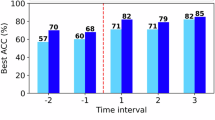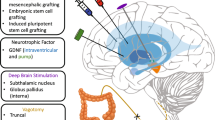Abstract
Tracking Parkinson's disease (PD) symptom progression often uses the Unified Parkinson’s Disease Rating Scale (UPDRS), which requires the patient's presence in clinic, and time-consuming physical examinations by trained medical staff. Thus, symptom monitoring is costly and logistically inconvenient for patient and clinical staff alike, also hindering recruitment for future large-scale clinical trials. Here, for the first time, we demonstrate rapid, remote replication of UPDRS assessment with clinically useful accuracy (about 7.5 UPDRS points difference from the clinicians’ estimates), using only simple, self-administered, and non-invasive speech tests. We characterize speech with signal processing algorithms, extracting clinically useful features of average PD progression. Subsequently, we select the most parsimonious model with a robust feature selection algorithm, and statistically map the selected subset of features to UPDRS using linear and nonlinear regression techniques, which include classical least squares and non-parametric classification and regression trees (CART). We verify our findings on the largest database of PD speech in existence (~6,000 recordings from 42 PD patients, recruited to a six-month, multi-centre trial). These findings support the feasibility of frequent, remote and accurate UPDRS tracking. This technology could play a key part in telemonitoring frameworks that enable large-scale clinical trials into novel PD treatments.
Similar content being viewed by others
Article PDF
Author information
Authors and Affiliations
Corresponding authors
Rights and permissions
About this article
Cite this article
Tsanas, A., Little, M., McSharry, P. et al. Accurate telemonitoring of Parkinson’s disease progression by non-invasive speech tests. Nat Prec (2009). https://doi.org/10.1038/npre.2009.3920.1
Received:
Accepted:
Published:
DOI: https://doi.org/10.1038/npre.2009.3920.1
Keywords
This article is cited by
-
An insight on recent advancements and future perspectives in detection techniques of Parkinson’s disease
Evolutionary Intelligence (2024)
-
Efficient multi-task learning with adaptive temporal structure for progression prediction
Neural Computing and Applications (2023)
-
Identification of Parkinson’s disease from speech signal using machine learning approach
International Journal of Speech Technology (2023)
-
Speech-Based Parkinson’s Disease Prediction Using XGBoost-Based Features Selection and the Stacked Ensemble of Classifiers
Journal of The Institution of Engineers (India): Series B (2023)
-
Evaluation of train and test performance of machine learning algorithms and Parkinson diagnosis with statistical measurements
Medical & Biological Engineering & Computing (2020)



